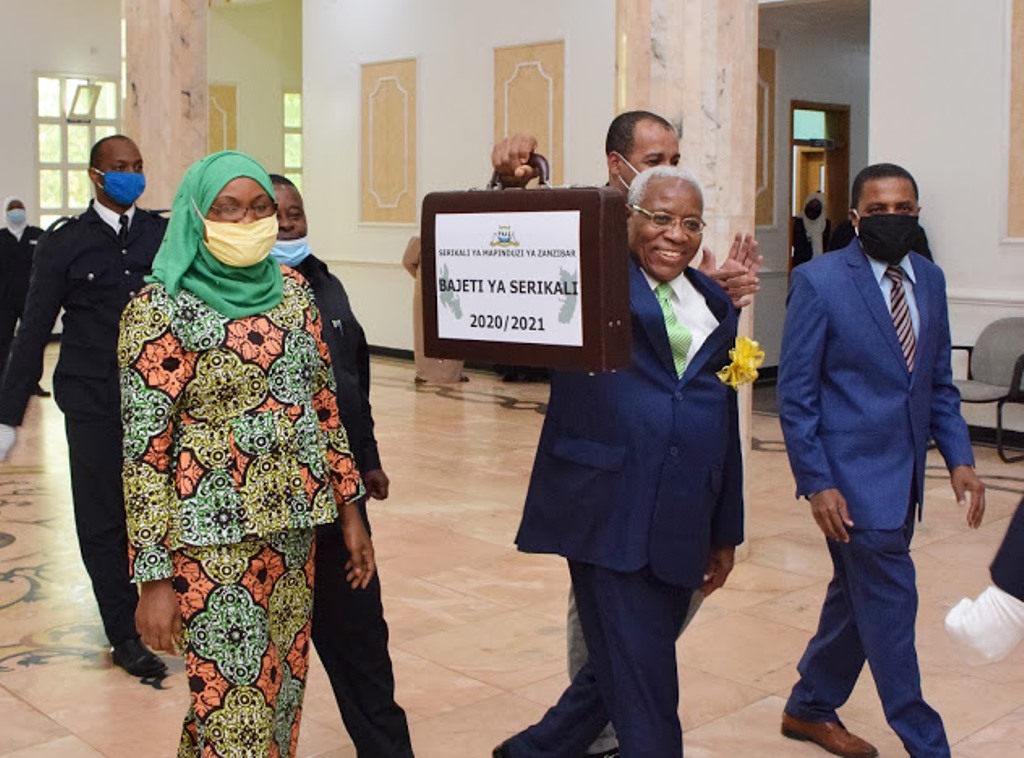AfricaPress-Tanzania: ZANZIBAR yesterday unveiled its ambitious 2020/2021 budget, focusing on countering the adverse impacts of Covid-19 and amplifying economic growth.
Finance and Planning Minister Mohamed Ramia Abdiwawa, presenting the budget before the House of Representatives here, ruled out tax increase on domestic sources, arguing that the government will instead rely on a firm economy, responsible tax payment and institutional efficiency in tax collections.
He said the government’s major goal is to attain economic independence instead of relying on donor funded budgets.
In the government’s major revenue and expenditure plan, which the minister said has attempted to accommodate the universal interest of Zanzibaris from all walks of lives, the government has proposed reduction of Value Added Tax (VAT) from 18 to 15 per cent.
Minister Abdiwawa also announced VAT exemption on all fishing gears, describing the fishing sector as the country’s major source of livelihood for majority Zanzibaris.
“Fishing is among the indigenous sectors—like agriculture—in the country that offers massive jobs to wananchi,” Minister Abdiwawa said.
Determined to relieve small entrepreneurs of bothering levies, the minister announced abolition of all charges and levies of between 1,000/- and 2,000/- daily on traders at markets, food vendors and sardine mongers, payable to Local Government Authorities (LGAs).
The government has instead proposed a 30,000/- flat rate charge annually that will qualify the small entrepreneurs for registration and receipt of special identity cards.
The minister further proposed the removal of an annual licence fee of between 500,000/- and 3m/- payable to LGAs by Zanzibar Investment Promotion Agency (ZIPA)-registered industries.
Instead of the monthly cleanness fee of between 10,000/- and 100,000/- paid by ZIPA-registered industries to LGAs, the government has introduced the 600,000/- flat rate fee, annually and payable during the licence application.
But, ZIPA non-registered industries will pay 240,000/- cleanness fee annually instead of the monthly rates of between 10,000/- and 100,000/-, the minister said.
The government has as well proposed eradication of 1,000/- daily entry fee by private and public vehicles crossing from one district to another; abolition of 3,000/- daily route fee by passenger vehicles; and elimination of 50,000/- annual badge fee for drivers and conductors of commercial vehicles.
Under the new proposals, which have further eliminated a two per cent fee on marine transport ticket sales, public transport vehicles will pay a cleanness service fee of 50,000/- to the LGAs.
The new changes have as well touched the agriculture sector, with the abolition of charges on farm produce transportation permits, which Shehas collect on behalf of the LGAs. The permits will however be issued fee-freely to increase control on the produce.
Ambassador Abdiwawa proposed abolition of all fees and levies, which the LGAs charge on seaweeds, citing the 2,000/- per ton transport fee; 10,000/- to 20,000/- monthly marine produce coordination fee; and 3,000/- to 10,000/- per sack transport levy on marine produce.
According to the presented budget, almost all economic sectors—from hawkers to the money-minting tourism—were addressed, with fiscal reliefs.
Ambassador Ramia said despite the adverse impacts of Covid-19, the government envisages economic growth of at least between three and five per cent; and sweeping economic reforms through increased industrial, service and agricultural production in the next three years.







